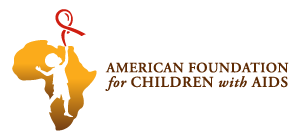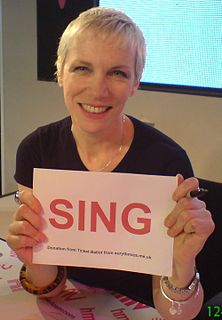
HIV/AIDS originated in Africa in the early 20th century and is a major public health concern and cause of death in many African countries. AIDS rates vary dramatically although the majority of cases are concentrated in Southern Africa. Although the continent is home to about 15.2 percent of the world's population, more than two-thirds of the total infected worldwide – some 35 million people – were Africans, of whom 15 million have already died. Sub-Saharan Africa alone accounted for an estimated 69 percent of all people living with HIV and 70 percent of all AIDS deaths in 2011. In the countries of sub-Saharan Africa most affected, AIDS has raised death rates and lowered life expectancy among adults between the ages of 20 and 49 by about twenty years. Furthermore, the life expectancy in many parts of Africa is declining, largely as a result of the HIV/AIDS epidemic with life-expectancy in some countries reaching as low as thirty-nine years.

The Health Resources and Services Administration (HRSA) is an agency of the U.S. Department of Health and Human Services located in North Bethesda, Maryland. It is the primary federal agency for improving access to health care services for people who are uninsured, isolated or medically vulnerable.

TBWA\Chiat\Day is the American division of the advertising agency TBWA Worldwide. Created in the 1995 merger of TBWA and Chiat/Day, the agency operates offices in Los Angeles, New York City, Nashville, and Mexico City. Prior to the merger, Chiat/Day created internationally notable advertising, including "1984" for Apple Computer, the advertisement that introduced the Macintosh computer. The merger also inspired the creation of the ad agency St.Lukes by Chiat/Day's London office's employees.

HIV/AIDS in India is an epidemic. The National AIDS Control Organisation (NACO) estimated that 2.14 million people lived with HIV/AIDS in India in 2017. Despite being home to the world's third-largest population of persons with HIV/AIDS, the AIDS prevalence rate in India is lower than that of many other countries. In 2016, India's AIDS prevalence rate stood at approximately 0.30%—the 80th highest in the world. Treatment of HIV/AIDS is primarily via a "drug cocktail" of antiretroviral drugs and education programs to help people avoid infection.

PATH is an international, nonprofit global health organization based in Seattle, with 1,600 employees in more than 70 countries around the world. Its president and CEO is Nikolaj Gilbert, who is also the Managing Director and CEO of Foundations for Appropriate Technologies in Health (FATH), PATH's Swiss subsidiary. PATH focuses on six platforms—vaccines, drugs, diagnostics, devices, system, and service innovations—to develop innovations and implement solutions that save lives and improve health.
Be More is a social enterprise in the Netherlands with as stakeholder an own charity. Be More sends volunteers to community led project(orphanages, medical clinics, schools, hospices) in developing countries. They support projects in South Africa, Malawi, Uganda, Cambodia and the Philippines. As a volunteer you can work for at least 4 weeks at one of the partnerprojects of Be More. They guide you with all the preparations and with a Dutch regional coordinator they guide the volunteers during their trip in one of the country. They want to build a bridge between different cultures and want to create more awareness for people who have less opportunities in life. With the charity they support the local partnerprojects financially.
Whitman-Walker Health (WWH), formerly Whitman-Walker Clinic, is a non-profit community health center in the Washington, D.C. metropolitan area with a special expertise in HIV/AIDS healthcare and LGBT healthcare. Founded as an affirming health center for the gay and lesbian community in 1978, Whitman-Walker was one of the first responders to the HIV/AIDS epidemic in D.C. and became a leader in HIV/AIDS education, prevention, diagnosis and treatment. In recent years, Whitman-Walker has expanded its services to include primary healthcare services, a stronger focus on queer women's care and youth services.
Kenya has a severe, generalized HIV epidemic, but in recent years, the country has experienced a notable decline in HIV prevalence, attributed in part to significant behavioral change and increased access to ARV. Adult HIV prevalence is estimated to have fallen from 10 percent in the late 1990s to about 4.8 percent in 2017. Women face considerably higher risk of HIV infection than men but have longer life expectancies than men when on ART. The 7th edition of AIDS in Kenya reports an HIV prevalence rate of eight percent in adult women and four percent in adult men. Populations in Kenya that are especially at risk include injecting drug users and people in prostitution, whose prevalence rates are estimated at 53 percent and 27 percent, respectively. Men who have sex with men (MSM) are also at risk at a prevalence of 18.2%. Other groups also include discordant couples however successful ARV-treatment will prevent transmission. Other groups at risk are prison communities, uniformed forces, and truck drivers.

Mozambique is a country particularly hard-hit by the HIV/AIDS epidemic. According to 2008 UNAIDS estimates, this southeast African nation has the 8th highest HIV rate in the world. With 1,600,000 Mozambicans living with HIV, 990,000 of which are women and children, Mozambique's government realizes that much work must be done to eradicate this infectious disease. To reduce HIV/AIDS within the country, Mozambique has partnered with numerous global organizations to provide its citizens with augmented access to antiretroviral therapy and prevention techniques, such as condom use. A surge toward the treatment and prevention of HIV/AIDS in women and children has additionally aided in Mozambique's aim to fulfill its Millennium Development Goals (MDGs). Nevertheless, HIV/AIDS has made a drastic impact on Mozambique; individual risk behaviors are still greatly influenced by social norms, and much still needs to be done to address the epidemic and provide care and treatment to those in need.

Rwanda faces a generalized epidemic, with an HIV prevalence rate of 3.1 percent among adults ages 15 to 49. The prevalence rate has remained relatively stable, with an overall decline since the late 1990s, partly due to improved HIV surveillance methodology. In general, HIV prevalence is higher in urban areas than in rural areas, and women are at higher risk of HIV infection than men. Young women ages 15 to 24 are twice as likely to be infected with HIV as young men in the same age group. Populations at higher risk of HIV infection include people in prostitution and men attending clinics for sexually transmitted infections.
The Black Ball is an annual fundraiser gala for Keep a Child Alive, the non-profit organization which brings dignified treatment, care and support to children and families affected by HIV. Keep a Child Alive's (KCA) Black Ball brings celebrity and philanthropy together to fulfill hopes, dreams and raise funds for children and families affected by HIV in Kenya, Rwanda, South Africa, Uganda and India. Hosted by KCA co-founder Alicia Keys, this event takes place in New York and has raised over $18.5 million since 2004. The evening features a cocktail party, seated dinner, live auction and unique musical performances and collaborations. The Black Ball is held annually in New York City and has been produced by Empire Entertainment. The Black Ball gala has also been held in London, England in 2008, 2010 and 2011.
Starfish Greathearts Foundation is an international non-governmental organisation formed in 2001 to help orphaned and vulnerable children in South Africa. Its mission is to help make a difference in the lives of such children via community-based projects working at grassroots level. This enables individual communities to develop their own solutions to the challenges they come across. As of January 2022, Starfish projects have reached more than 220,000 children in 110 communities across South Africa.</ref>Starfish Greathearts Foundation.

The American Foundation for Children with AIDS (AFCA) is a non-profit organization that helps children in sub-Saharan Africa, as well as their guardians, who are HIV positive or who have contracted AIDS and lack access to appropriate medical care. Sub-Saharan Africa has been most affected by the HIV/AIDS epidemic, given that of all new HIV infections in the world, those in sub-Saharan Africa account for more than two-thirds of that number, as of 2008. In helping to fight the battle against HIV/AIDS in sub-Saharan Africa, AFCA provides critical antiretroviral medicine and other related medications, medical equipment and supplies, sustainable food solutions for families and institutions helping orphans, emergency supplies needed by the institutions in AFCA's targeted areas, as well as critical support for the prevention of HIV/AIDS, which included training of personnel. Currently, AFCA collaborates with twenty-eight partners in the Democratic Republic of the Congo, Kenya, Malawi, Uganda, and Zimbabwe.

Indrani Pal-Chaudhuri is a director, photographer, public speaker, television personality, and Princeton University educator, known mononymously as "Indrani" for her multi-platform works of art, innovation, and social impact.

The SING Campaign is a UK-based, non-governmental, nonprofit organization founded by artist/activist Annie Lennox which aims to raise funds and awareness for issues surrounding HIV/AIDS. The money raised by SING is used to help prevent the spread of HIV in South Africa, and also to support those currently living with HIV. Comic Relief manages the SING fund, and assists in co-ordinating the SING campaign.
Peter Edge is an English-American record executive. He is the chairman and CEO of RCA Records.

YouthAIDS is an international nongovernmental, nonprofit education, funding, and health initiative of Population Services International (PSI) that provides humanitarian assistance and brings global awareness to the proliferation of HIV/AIDS. The organization is based in Washington, D.C., and reaches out to 600 million youth in over 60 countries through the delivery of information, products, and social services. Methods used to address issues include film, television, and radio; celebrity spokespersons; pop culture initiatives; theatrical productions; music; and sports. Actress and humanitarian Ashley Judd serves the organization as their Global Ambassador.
The Academic Model Providing Access to Healthcare (AMPATH) is an academic medical partnership between North American academic health centers led by the Indiana University School of Medicine in Indianapolis, Indiana and the Moi University School of Medicine, centered in Eldoret, Kenya. It is the first food-and-drug treatment model to be established in Africa. The program seeks to provide comprehensive HIV care services through its three-way mission: care, research, and training; It currently serves 3.5 million people, with over 60 urban and rural clinics in Western Kenya.

The Catholic Medical Mission Board (CMMB) is an international, faith-based NGO, providing long-term, co-operative medical and development aid to communities affected by poverty and healthcare issues. It was established in 1912 and officially registered in 1928. CMMB is headquartered in New York City, USA, and currently has country offices in Haiti, Kenya, Peru, South Sudan, and Zambia.
The Beyond Zero Campaign is an initiative launched by Kenya's First Lady, Margaret Gakuo Kenyatta. Its goals are to improve maternal and child health in Kenya, and to reduce new HIV infections among children. The campaign was unveiled in 2013 on World AIDS Day, and launched on 24 January 2014. Many international organizations have joined Kenyatta and the Kenyan government in supporting Beyond Zero.












